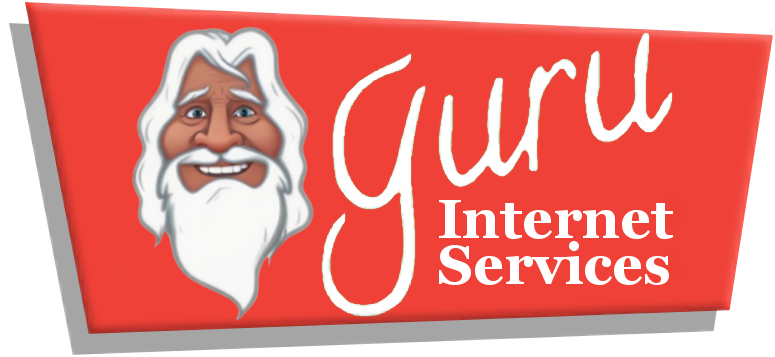The landscape of internet marketing has undergone a dramatic transformation since its inception. In the early days, online marketing was a novelty, limited to simple banner ads and email campaigns. However, the advent of search engines and the rise of social media platforms have revolutionized the way businesses connect with their target audience. Today, internet marketing encompasses a variety of strategies, including search engine optimization (SEO), pay-per-click (PPC) advertising, social media marketing, content marketing, and more, all aimed at enhancing online visibility and driving consumer engagement.
Businesses that understand the importance of adapting to the ever-evolving digital environment are the ones that thrive. By leveraging cutting-edge analytics and targeting tools, companies can now personalize their marketing efforts to reach potential customers more effectively than ever before. Moreover, with the rise of mobile technology, marketers must ensure that their strategies are optimized for a range of devices, providing a seamless user experience across all platforms.
At Guru-is.com, we recognize the potential of internet marketing to fuel business growth. Our team is dedicated to staying ahead of the curve, using innovative web design and development to empower your business. Harness the power of internet marketing and revolutionize your online presence with us. Get a quote and let’s create a strategy that ensures absolute web success for your business!
Strategies for Effective Online Brand Presence

To carve out a strong online brand presence, businesses must implement strategic internet marketing techniques. Content marketing sits at the heart of this, involving the creation and sharing of valuable content to attract and retain a clearly-defined audience. This content can range from blog posts and videos to infographics and podcasts, all tailored to the interests and needs of target customers.
Another crucial strategy is search engine optimization (SEO), which enhances a website’s visibility in search engine results pages (SERPs). By optimizing content with relevant keywords, maintaining a user-friendly site structure, and earning quality backlinks, businesses can increase organic traffic and establish authority in their industry.
Social media platforms offer a powerful avenue for brand promotion and customer engagement. Companies should focus on building a consistent brand voice and image across all channels, engaging with their audience through regular posts, comments, and interactive content. Paid advertising campaigns on these platforms can also amplify reach and target specific demographics with precision.
Email marketing remains a highly effective tool for direct communication with customers, allowing for personalized messaging and promotions that can drive loyalty and repeat business. Finally, analytics and data-tracking tools are invaluable for measuring the success of internet marketing campaigns and making informed decisions to refine strategies over time.
By integrating these strategies, businesses can develop a comprehensive and impactful online presence. In the digital marketplace, a well-crafted internet marketing plan is not just an option; it is an essential component for achieving competitive advantage and long-term success.
Leveraging Social Media in Digital Marketing Campaigns

In the realm of internet marketing, social media is a game-changer, offering unparalleled opportunities for businesses to connect with their audience. To fully leverage social media in digital marketing campaigns, companies must first identify the platforms where their target audience is most active. Whether it’s Facebook, Instagram, Twitter, LinkedIn, or newer platforms like TikTok, each has unique features and user demographics that can inform a tailored marketing approach.
Creating engaging content that resonates with users is key to social media success. This includes eye-catching visuals, compelling videos, informative articles, and interactive features like polls and live streams. Such content encourages shares, likes, and comments, fostering organic reach and virality.
Another vital aspect is community management. Interacting with followers, responding to comments, and participating in conversations can build a loyal community around a brand. This not only enhances brand image but also provides valuable insights into customer preferences and behaviors.
Paid social media advertising is another powerful tool that allows for hyper-targeted campaigns. With sophisticated targeting options, advertisers can reach specific demographics based on interests, behaviors, location, and more. This ensures that marketing messages are seen by those most likely to engage with the brand.
Finally, tracking engagement and conversion metrics is essential for understanding the effectiveness of social media campaigns and optimizing future efforts. Utilizing tools such as Facebook Insights or Twitter Analytics can help marketers make data-driven decisions to maximize ROI.
Integrating social media strategically within broader internet marketing initiatives can greatly amplify a brand’s online presence and drive meaningful engagement with potential and existing customers.
SEO and Content Marketing: A Synergistic Approach
Search Engine Optimization (SEO) and content marketing are two pillars of internet marketing that, when combined, create a synergistic approach to digital visibility and audience engagement. SEO involves optimizing a website to rank higher in search engine results, while content marketing focuses on creating and distributing valuable, relevant, and consistent content to attract and retain a clearly defined audience.
At the core of this synergistic approach is keyword research, which informs the content creation process. Identifying and incorporating the right keywords helps ensure that the content not only appeals to the target audience but also adheres to search engine algorithms. However, it’s crucial to maintain a balance between keyword usage and the natural flow of the content to avoid the pitfalls of keyword stuffing.
Quality content is the cornerstone of effective SEO. By producing authoritative and informative content, businesses can establish themselves as thought leaders in their industry. This not only attracts backlinks from other sites, which are crucial for SEO, but also increases user engagement, as visitors are more likely to spend time on and return to a site that offers value.
SEO and content marketing also require a focus on user experience (UX). A well-designed website that’s easy to navigate and provides a seamless user journey can lead to longer dwell times and lower bounce rates, which are positive signals to search engines. Moreover, optimizing for mobile users is non-negotiable in today’s mobile-first world, as search engines like Google prioritize mobile-friendly sites in their rankings.
It’s important to track the performance of both SEO and content marketing efforts through analytics. By doing so, businesses can gain insights into what works and what doesn’t, allowing them to refine their strategies for improved outcomes. When SEO and content marketing work hand-in-hand, they create a powerful combination that can significantly enhance a business’s online presence and drive sustainable growth.
Measuring Success: Analytics in Internet Marketing

Understanding the impact of internet marketing initiatives is essential for businesses aiming to achieve absolute web success. Analytics serve as the compass in the vast sea of digital marketing, providing the metrics and insights necessary to gauge the effectiveness of various strategies. The key is to focus on the right metrics that align with business objectives, whether that’s increasing brand awareness, generating leads, or driving sales.
Web analytics tools like Google Analytics offer a comprehensive look into website traffic, user behavior, and conversion rates. By monitoring these metrics, businesses can learn which channels are driving the most traffic, what content resonates with their audience, and where there might be room for improvement. For example, a high bounce rate might indicate that the landing page content is not relevant or engaging enough, prompting a revision of the content or design.
Another critical aspect of analytics in internet marketing is tracking the customer journey. Understanding the pathways that lead to conversion can help marketers optimize the sales funnel. This might involve A/B testing different page layouts or calls-to-action to determine which variations perform the best in converting visitors into customers.
Social media analytics also play a vital role, as platforms provide detailed insights into post engagement, audience demographics, and peak activity times. Such data empowers businesses to tailor their content and posting schedule to maximize reach and engagement.
Email marketing campaigns benefit from analytics as well, with metrics such as open rates, click-through rates, and conversion rates indicating the effectiveness of email content and subject lines. Adjusting these elements based on data can lead to significant improvements in campaign performance.
Ultimately, the goal of analytics in internet marketing is to turn data into actionable insights. By continually measuring, analyzing, and adjusting strategies based on analytical feedback, businesses can refine their internet marketing efforts to ensure they’re achieving the desired outcomes, leading to absolute web success.
Future Trends in Internet Marketing and Business Growth

As we look towards the horizon, it’s clear that the future of internet marketing will be shaped by emerging technologies and evolving consumer behaviors. Businesses that adapt to these changes will be better positioned to grow and thrive in the competitive digital landscape. One of the most significant trends is the rise of artificial intelligence (AI) and machine learning, which are set to revolutionize the personalization of customer experiences. By analyzing vast amounts of data, AI can help businesses predict consumer behavior and automate tailored marketing campaigns.
Another trend to watch is the increasing importance of voice search optimization. With the popularity of smart speakers and virtual assistants, optimizing for voice search will become crucial for businesses to ensure their content is easily discoverable in spoken queries.
Video content, already a powerful marketing tool, is expected to dominate even more, as platforms like TikTok and Instagram Reels continue to expand. Brands will need to become more adept at creating engaging, short-form video content to capture the attention of their audiences.
Moreover, the integration of augmented reality (AR) and virtual reality (VR) in marketing campaigns can offer immersive experiences that enhance brand storytelling and product visualization. This could revolutionize the way customers interact with products before making a purchase.
As these trends continue to unfold, staying ahead in internet marketing will require innovation, agility, and a deep understanding of the digital ecosystem. For businesses seeking to leverage these future trends to achieve absolute web success, partnering with experts in the field can be a game-changer.
At Guru-is.com, we are dedicated to empowering businesses through innovative web design and forward-thinking internet marketing strategies. If you’re ready to harness the power of the latest trends and drive real business growth, Get a quote today and let us help you navigate the future of internet marketing.

